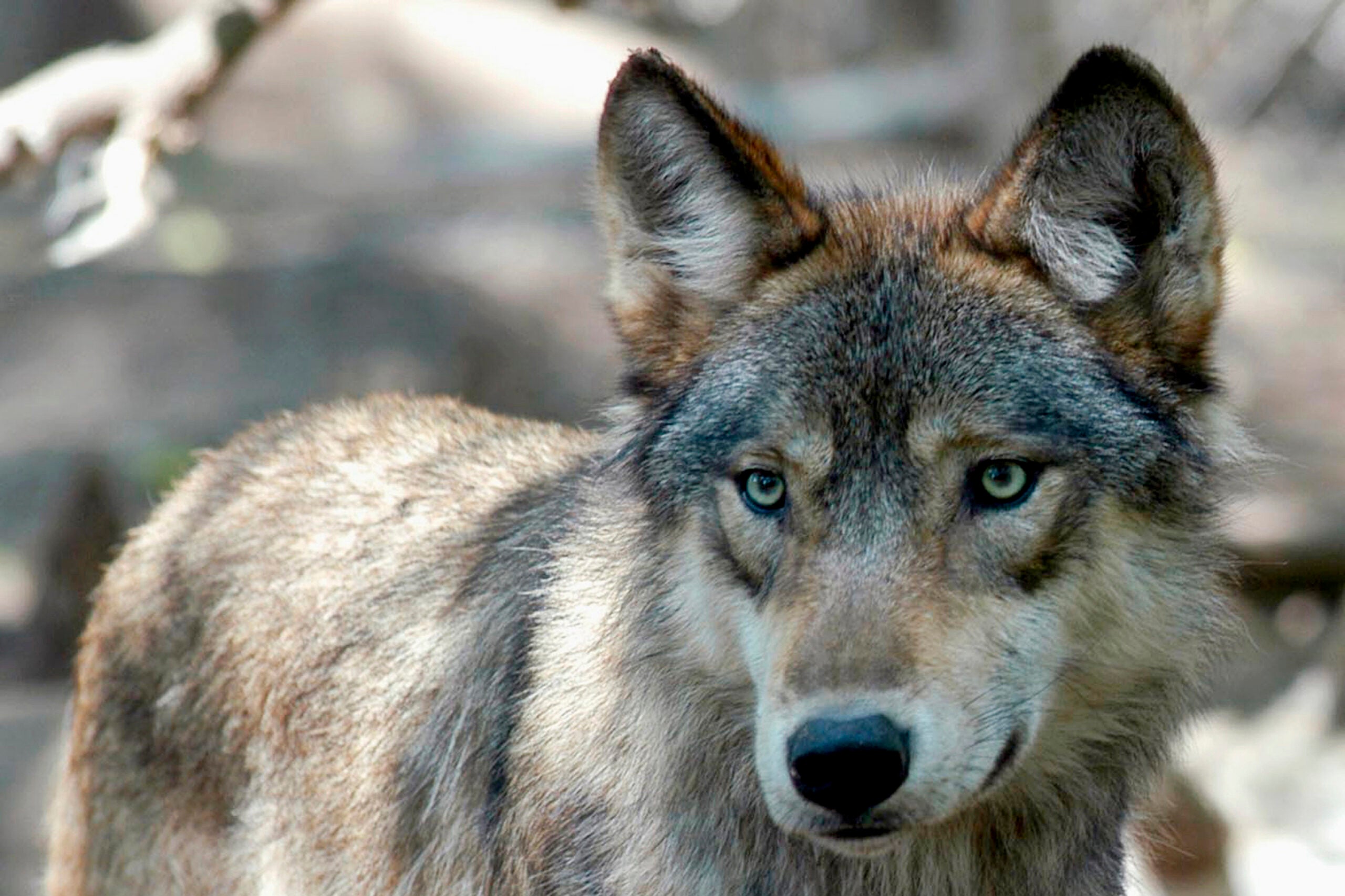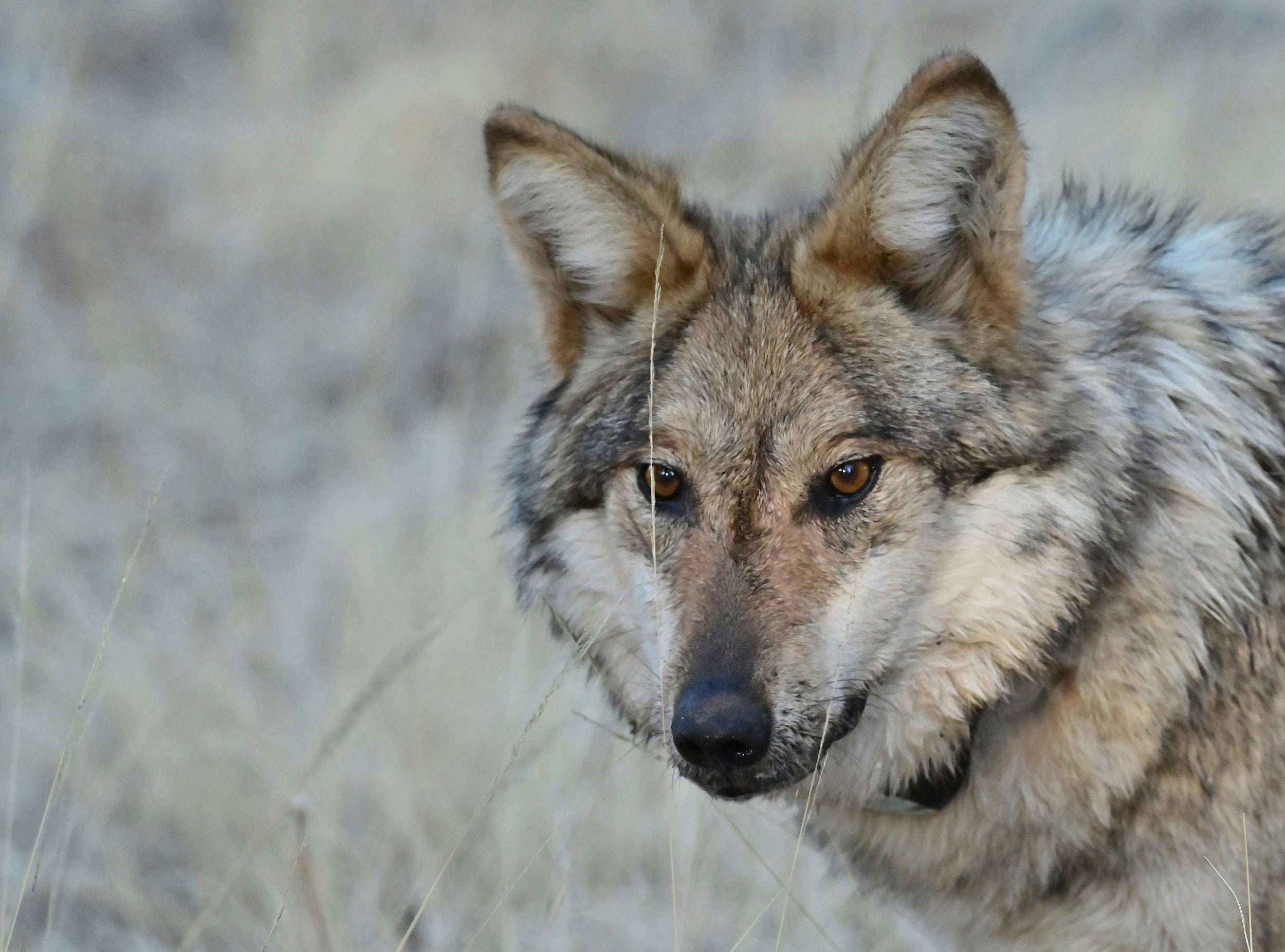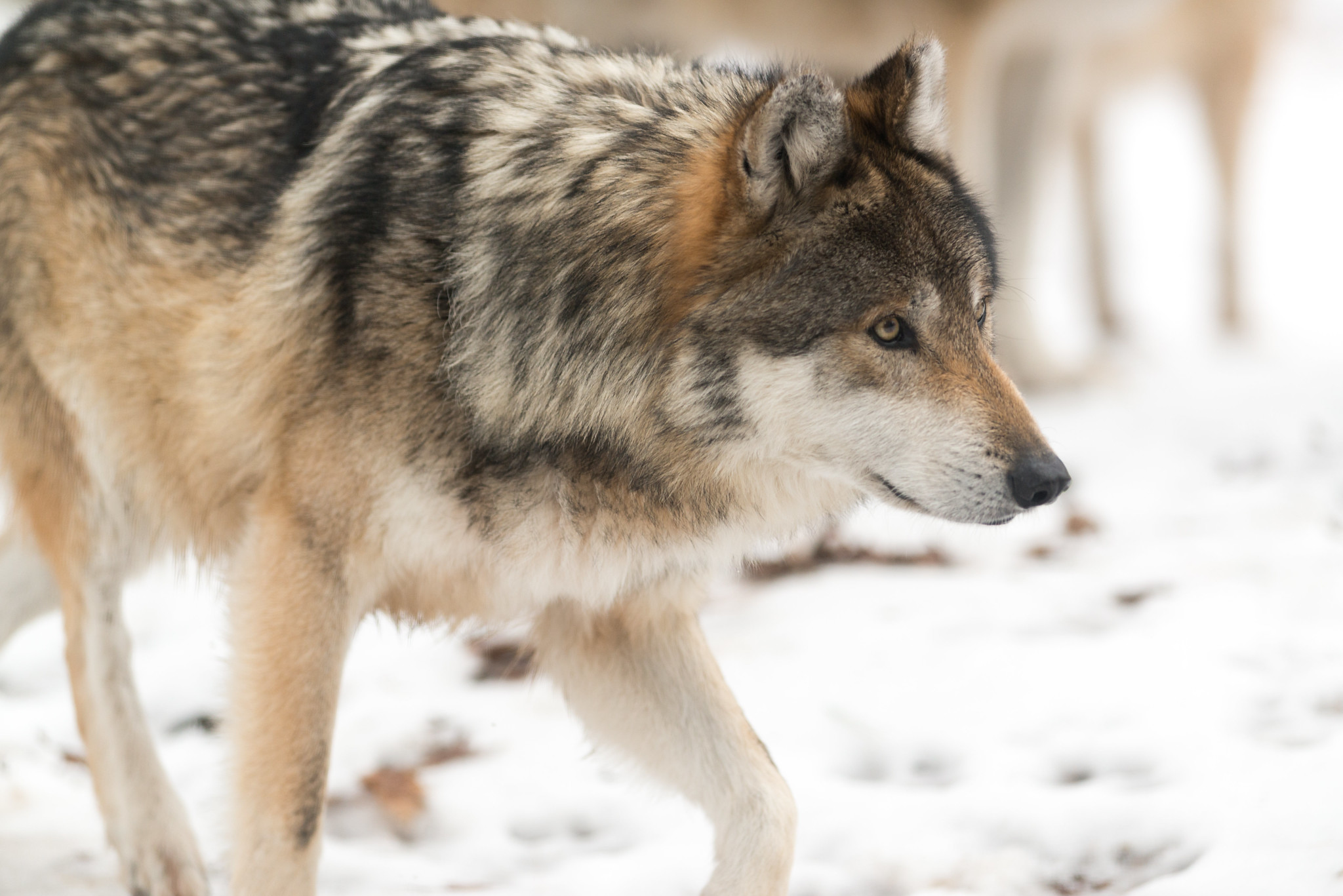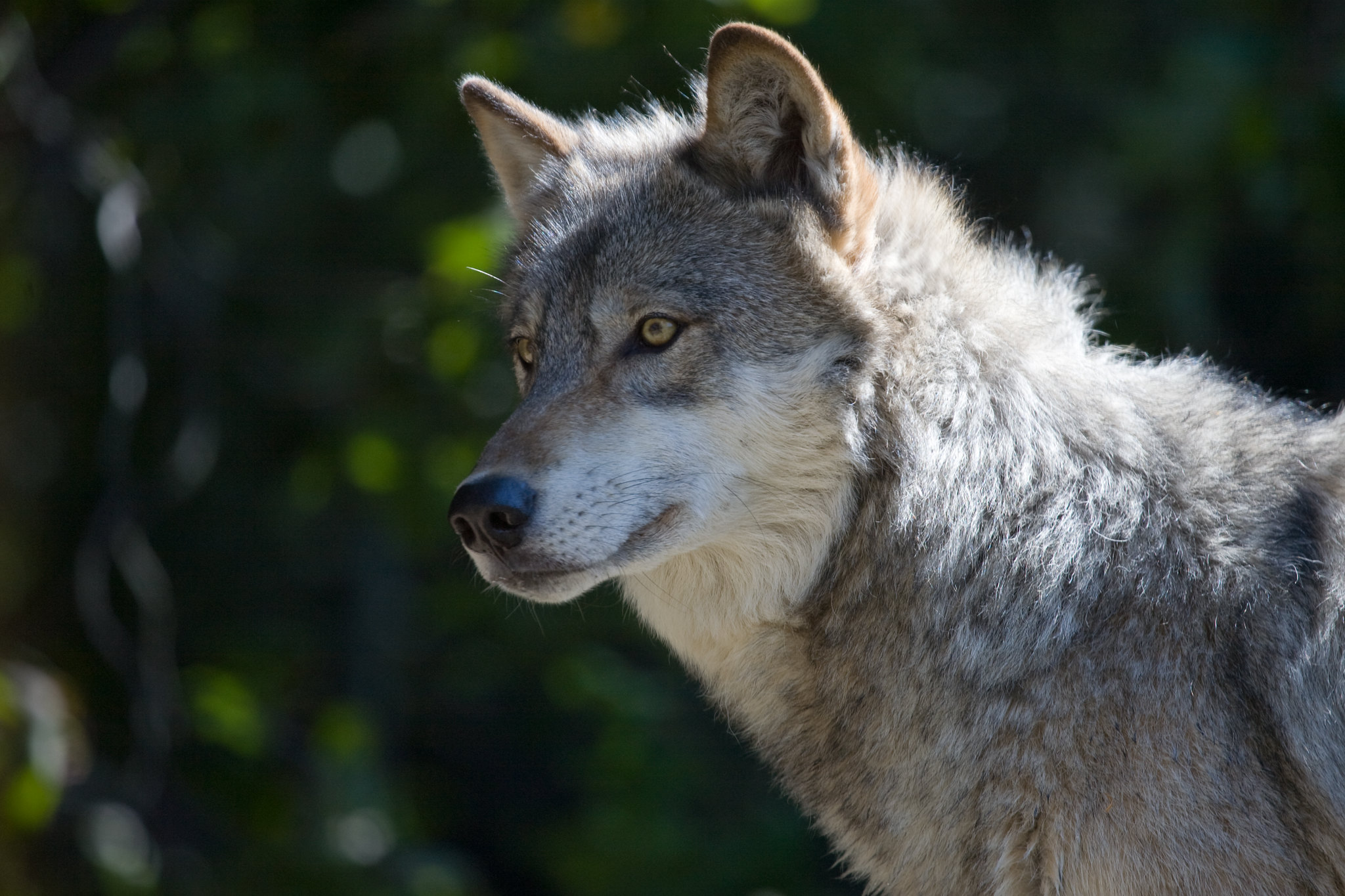The Wisconsin Department of Natural Resources says it’s setting a quota of 130 wolves for the fall wolf hunt, rejecting a move by its own policy-setting board to more than double the amount of wolves that can be harvested.
In a news release, the DNR said state law authorizes the agency to make the final call on a quota for the hunt that’s set to begin Nov. 6. The move is the latest development in an apparent power struggle between the DNR under Gov. Tony Evers’ administration and the conservative majority on the Wisconsin Natural Resources Board who were appointed by former Republican Gov. Scott Walker.
“In determining the quota, the department considered the best available information and scientific modeling, as well as the input from the Wolf Harvest Committee, the Natural Resources Board, and the many groups and members of the public who provided comments to the department and the Board,” said the agency in a release.
News with a little more humanity
WPR’s “Wisconsin Today” newsletter keeps you connected to the state you love without feeling overwhelmed. No paywall. No agenda. No corporate filter.
In its announcement, the DNR said state-licensed hunters and trappers will be able to take 74 wolves while the remaining wolves will be awarded to Wisconsin’s Ojibwe tribes as part of federal treaty rights.
The agency will sell five licenses for every wolf that can be harvested — less than half the number of licenses sold per wolf harvested in the February wolf hunt. In February, state-licensed hunters blew past their quota, killing 218 wolves in less than 72 hours.
A DNR spokesperson says the agency is unaware of any other time in history when the DNR has changed harvest quotas following NRB approval.
NRB Chair Fred Prehn disputes that the agency has final say under the law, calling the move by the department “unfortunate” and “disappointing.”
“This board has always set game quotas for the games’ species in Wisconsin, and to single this issue out and kind of go rogue on us is — it’s disturbing, to say the least,” said Prehn.
The DNR originally planned to hold a single wolf hunt this fall, but Kansas-based Hunter Nation sued in February to force a wolf hunt. A Jefferson County judge ordered the DNR to immediately hold a hunt in February. Changes to the fall quota may prompt another legal challenge as the Nov. 6 hunt fast approaches, according to Hunter Nation CEO Luke Hilgemann. He called the agency’s move highly suspect and possibly illegal.
“We are reviewing our legal opportunities here,” said Hilgemann. “And, if we believe that we have a chance to yet again intervene on behalf of Wisconsin hunters, we will be doing so.”
The DNR had previously recommended a quota of 130 wolves due to uncertainty of the population’s response to the February wolf hunt. The NRB voted 5-2 in August to have a harvest quota of 300 wolves for this fall’s wolf hunt. Board member and Evers’ appointee Sharon Adams admitted later that she had never intended to approve that harvest target.
Hilgemann said hunters supported the board’s quota and would’ve liked to see it set even higher. Hunters, farmers and some residents living among wolves have advocated for higher kills, pointing to increased conflicts with hounds and livestock as the wolf population has grown to more than 1,100 wolves statewide.
Meanwhile, animal rights groups, conservation groups, researchers and tribes have blasted the NRB and the DNR for the state’s approach to wolf management and its handling of the February wolf hunt.
“While a quota of 130 is obviously an improvement from a corrupt NRB auctioning off of wolves to kill in Wisconsin to appease politics, we are still evaluating whether or not the science supports a quota of 130 wolves for this fall, especially after the slaughter that occurred in February,” said Melissa Smith, founder of Friends of the Wisconsin Wolf and Wildlife in a statement. “This also does not address the fact that nothing prevents future atrocities until the repeal of Act 169 and a more democratic process in all DNR agency decisions.”
The Friends are among animal protection and wildlife advocacy groups who are suing to shut down the fall wolf hunt, calling a state law that mandates a hunt unconstitutional. Six Chippewa tribes have also filed a separate lawsuit seeking to halt the fall wolf season, saying their federal treaty rights have been violated. A hearing has been set in the tribes’ case for Oct. 29.
Wisconsin Attorney General Josh Kaul also brought a lawsuit against Prehn seeking to remove him from his seat, saying he’s defying the will of voters. The lawsuit stemmed from a complaint filed by animal rights groups over Prehn’s tenure on the board, which expired in May. Prehn has cited wolf management among reasons why he has decided to remain on the board.
The board’s chair has pointed to a Wisconsin Supreme Court ruling that allows him to remain in his seat until the Republican-controlled Senate confirms Evers’ appointee Sandy Naas. A judge has ruled in Prehn’s favor, but Kaul has vowed to appeal that decision.
Prehn, a Walker-era appointee, maintains the state should follow its existing wolf management plan in setting a quota for the fall wolf hunt. That plan sets a management goal of 350 wolves in Wisconsin.
Critics say that plan, which was first written in 1999 and last updated in 2007, is vastly outdated and not based on the best available science. The DNR has said the goal of 350 wolves was set as a trigger for management options — not a population goal.
Prehn said the DNR is being selective about the board’s authority over wildlife management.
“(It’s) probably something that legislators need to step in over the next couple sessions and figure out what exactly the board’s authority is because, clearly, (the DNR) decided that they don’t need it — at least with this issue,” said Prehn.
He accused the DNR of making wolf management a political issue, pointing to the agency’s recommendation to cancel last month’s board meeting. The DNR has denied that. Last week, DNR Deputy Secretary Todd Ambs told WPR there were no significant issues that needed immediate action from the board. Ambs added that the agency has all the administrative tools needed “to properly administer the hunt.”
The Trump administration removed the gray wolf from the endangered species list across most of the nation. Wildlife and environmental groups immediately sued to restore protections for the animal, but the Biden administration has backed the decision to delist the animal.
One study by University of Wisconsin-Madison researchers found hunters and poachers have killed a third of Wisconsin’s wolf population this year. Conservation groups like Wisconsin’s Green Fire fear the fall hunt could cut the state’s wolf population in half since earlier this year.
The DNR estimates Wisconsin had 1,136 wolves prior to the February hunt. The state’s population has grown from just 25 animals in 1980.
Wisconsin Public Radio, © Copyright 2025, Board of Regents of the University of Wisconsin System and Wisconsin Educational Communications Board.






